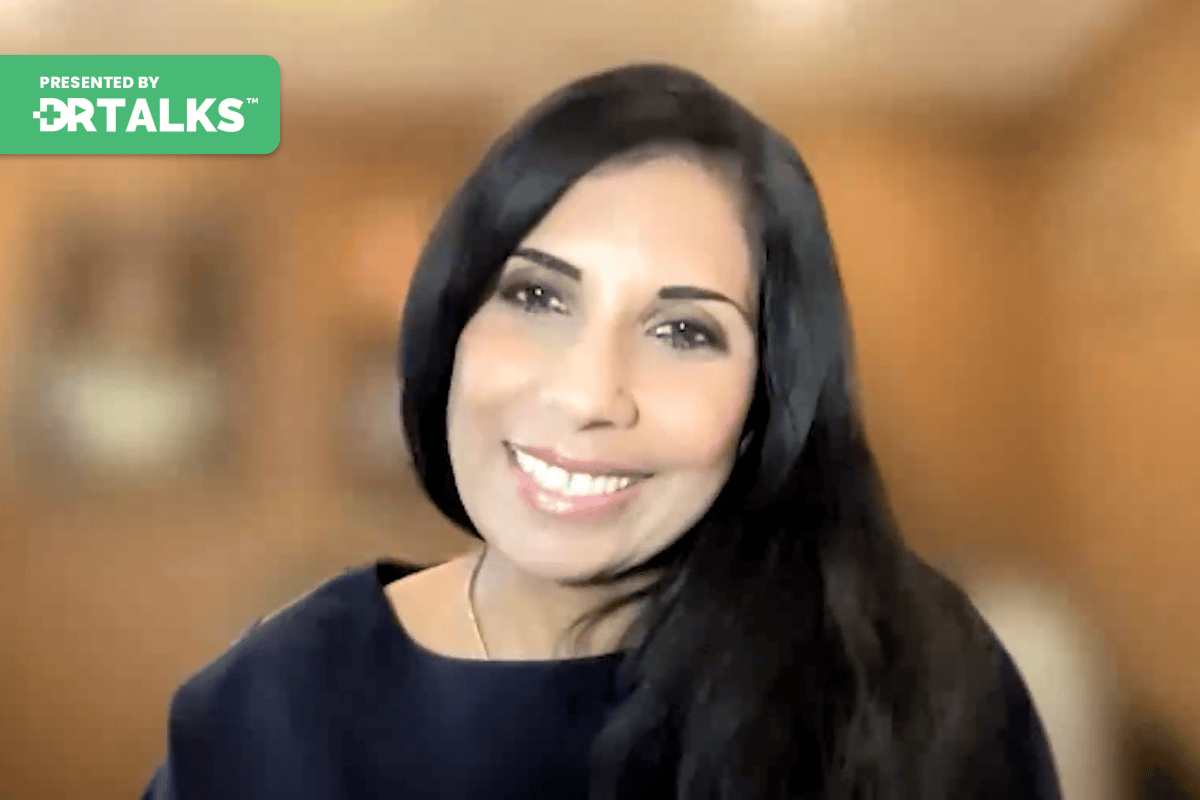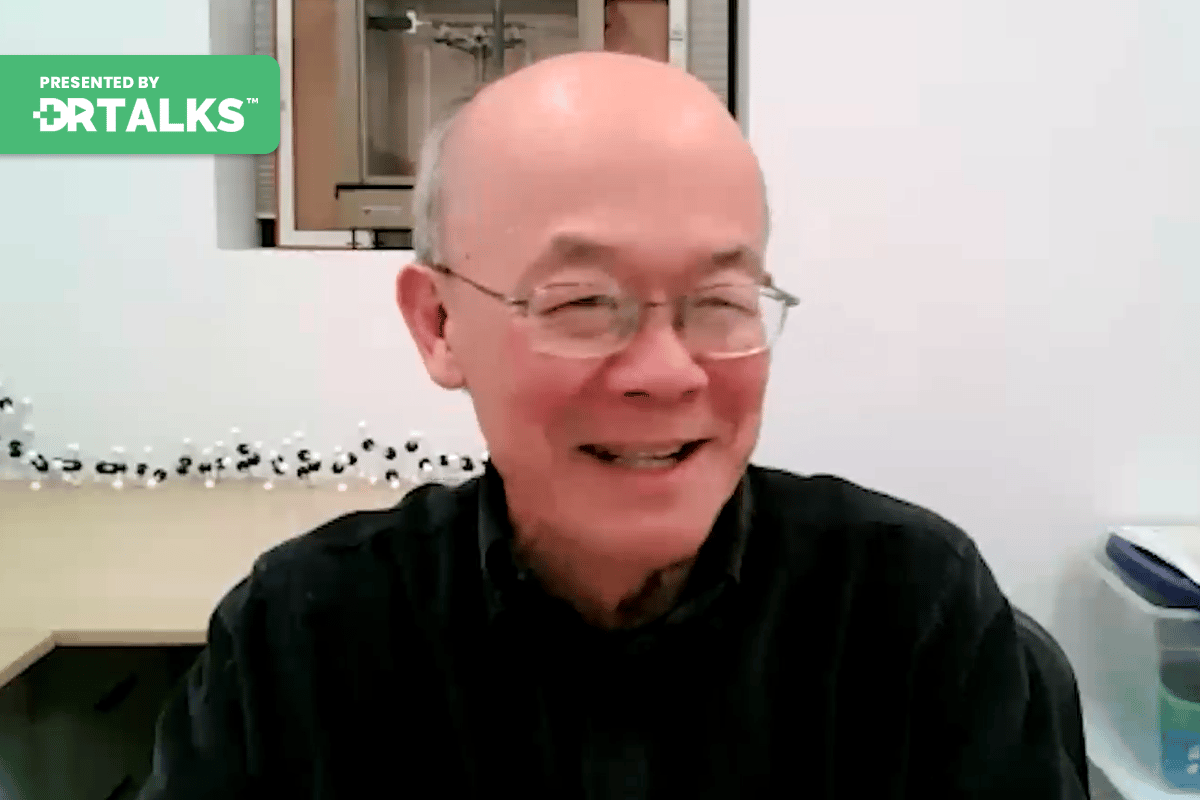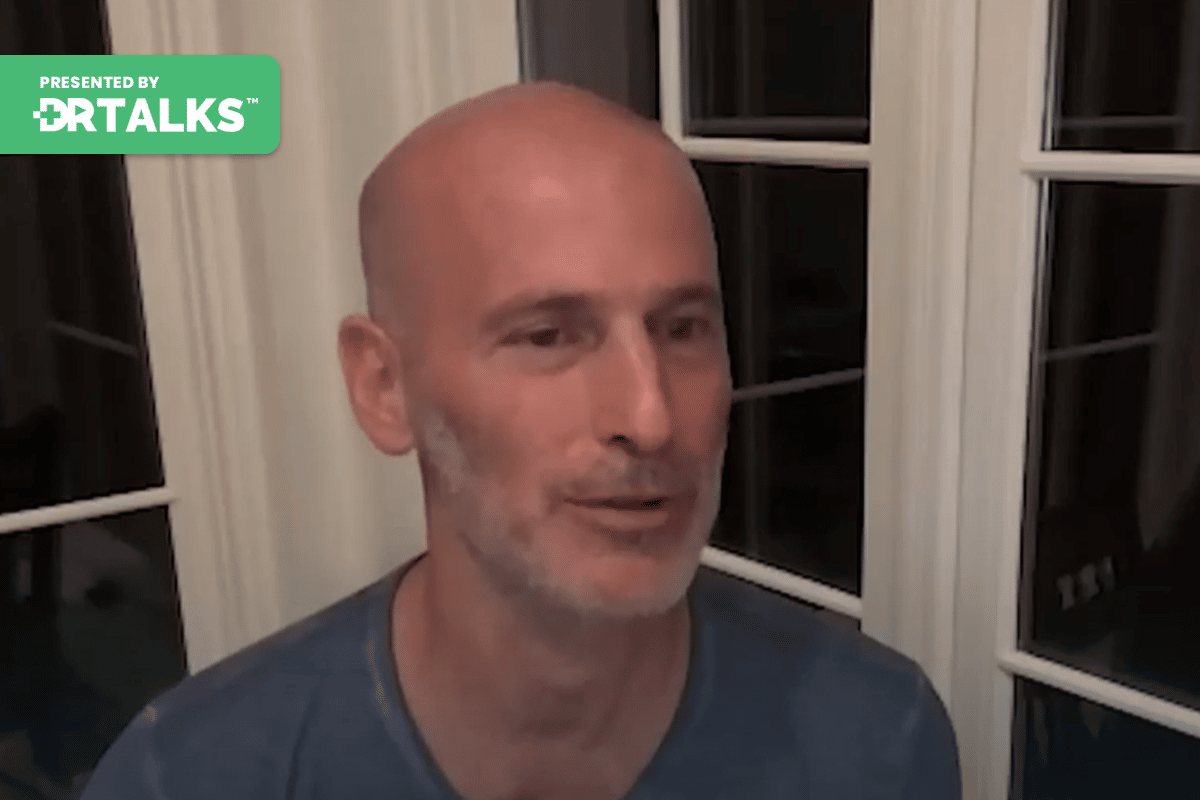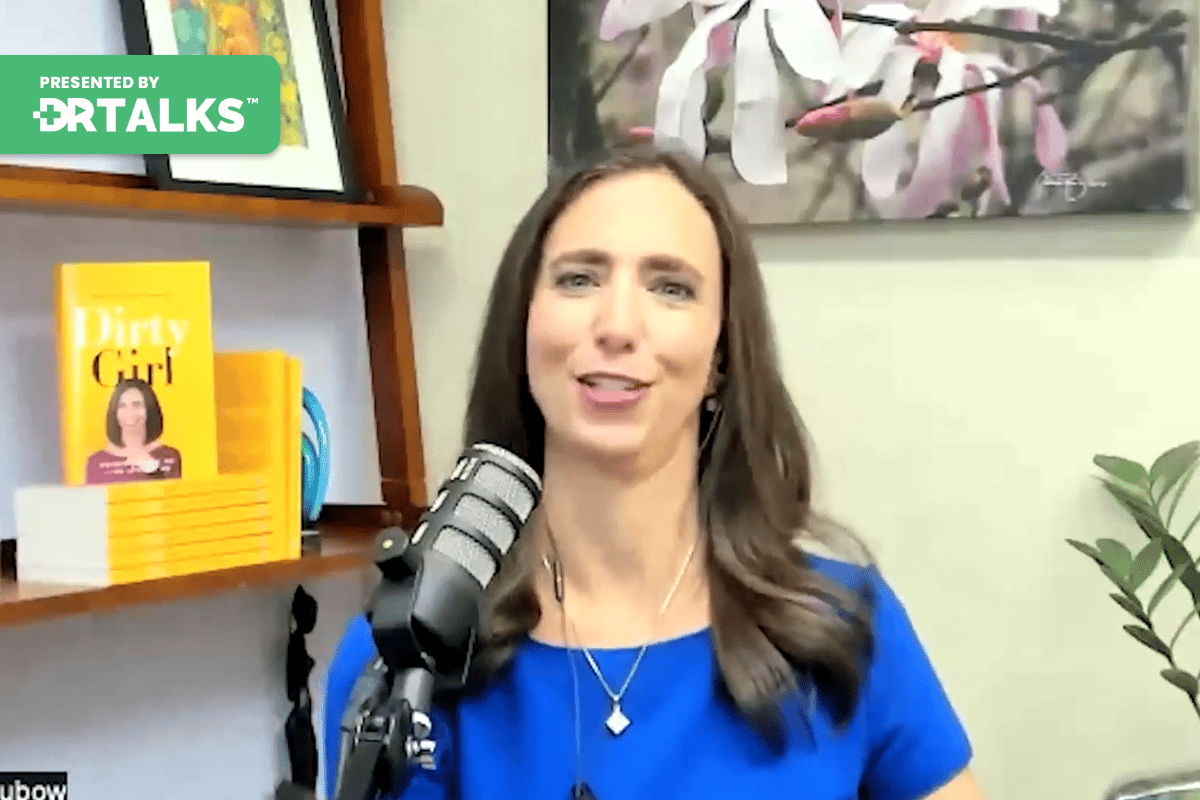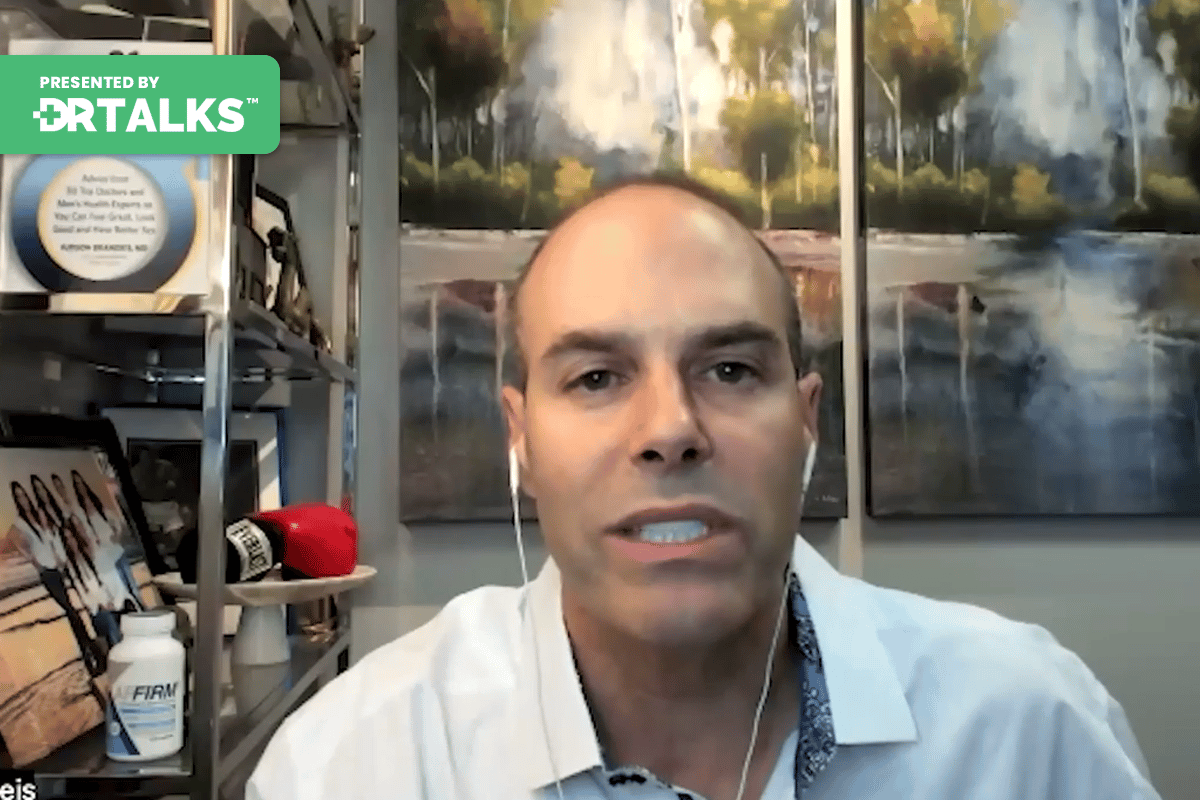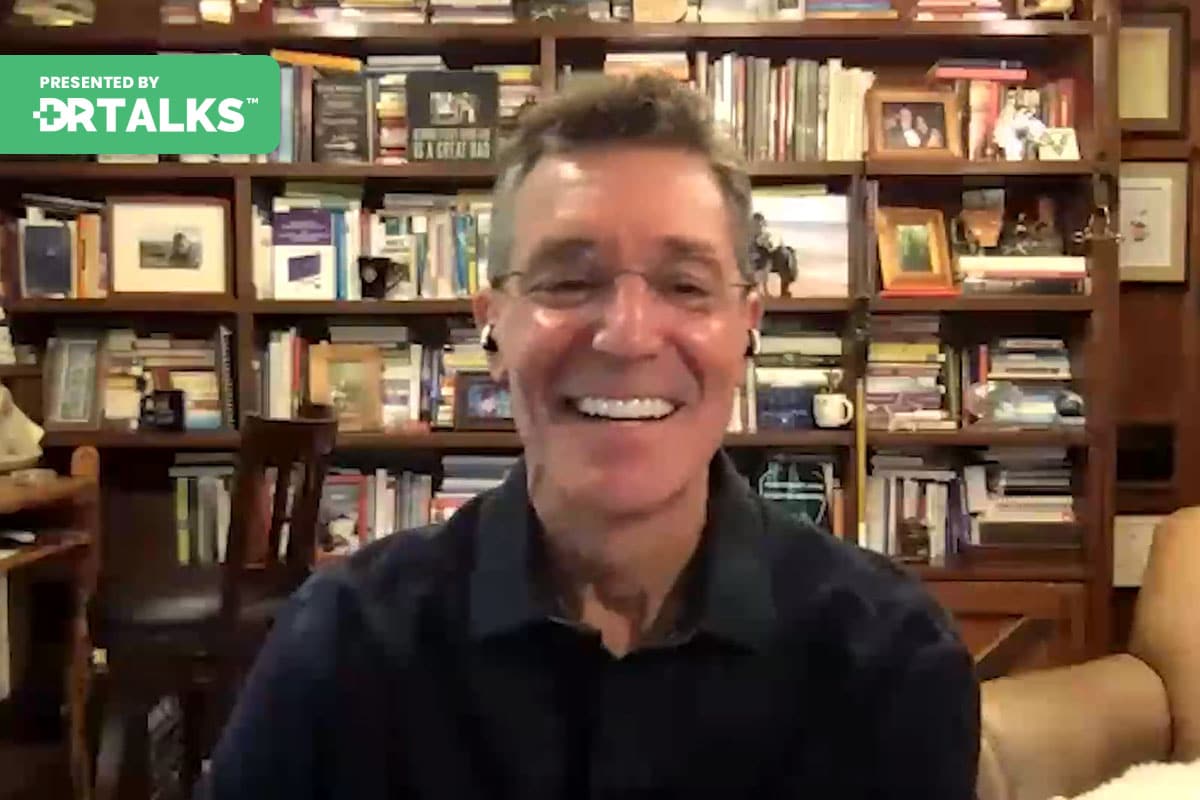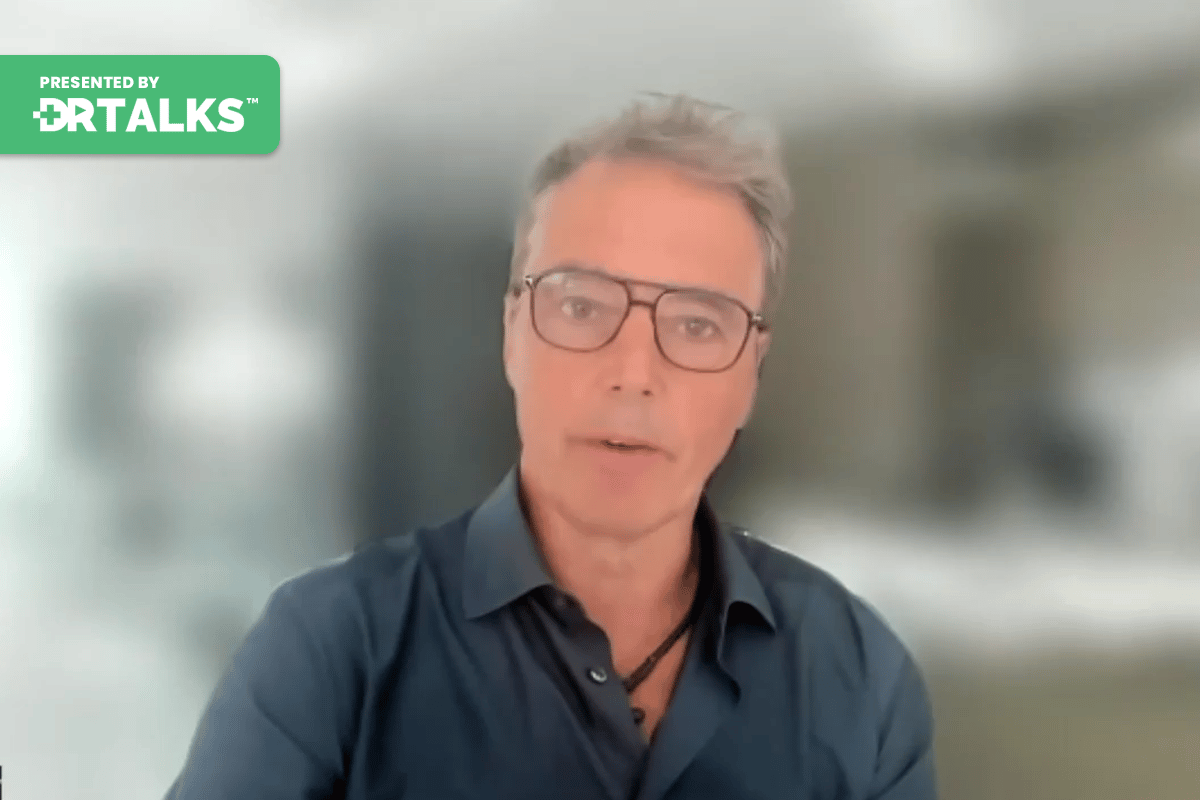Join the discussion below
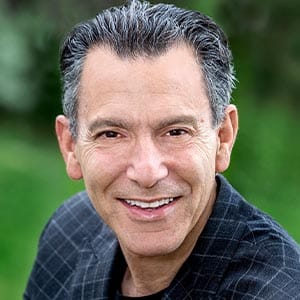
Joel Kahn, MD, FACC of Detroit, Michigan, is a practicing cardiologist, and a Clinical Professor of Medicine at Wayne State University School of Medicine. He graduated Summa Cum Laude from the University of Michigan Medical School. Known as “America’s Healthy Heart Doc”. Dr. Kahn has triple board certification in Internal... Read More
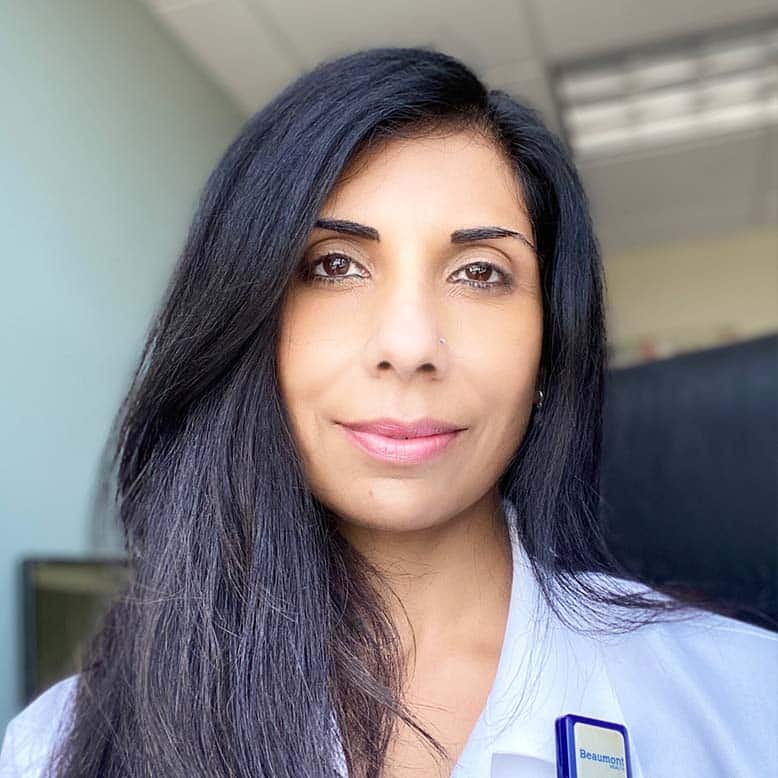
Kavitha Chinnaiyan, MD, FACC, MSCCT
Kavitha Chinnaiyan, MD, FACC, MSCCT is a cardiologist and Professor of Medicine at Oakland University William Beaumont School of Medicine in Royal Oak, MI, where she serves as the Director of Cardiac Imaging Research. Her clinical interests include preventive cardiology, cardiovascular disease in women and appropriate use of cardiac imaging.... Read More
- Aryuveda may be the oldest medical and life tradition offering healing beyond Western techniques
- A focus is on digestion and routine. Two meals a day within 10 hours and regular and restful sleep are foundations
- Aryuveda emphasizes a whole life and whole body viewpoint and connects the mind to the body for health and disease
Joel Kahn, MD, FACC
Good day. Everybody grab your pad of paper, grab a pen, we got another just superstar seriously, it blows me away with an opportunity I have to learn with you and we are going to delve into a way of heal your heart naturally summit and we’re gonna go to the oldest medical tradition in the world I believe that’s an accurate statement which is our jovetic medicine and I didn’t go far to bring a world expert because this is a local Detroit friend colleague, somebody I participated in training and world expert in both standard cardiology. Believe me when I say world expert and also our diabetic medicine and you want to follow her on social media, the most beautiful meaningful post and you want to buy her books and struggle with them like I do to get through them and try and learn because we literally could spend hours and not even scratch the surface. So Dr. Kavitha Chinnaiyan and thank you for being here in your busy life.
Kavitha Chinnaiyan, MD, FACC, MSCCT
Thank you, thank you so much for having me here.
Joel Kahn, MD, FACC
It is truly an honor and as I shared with you we have a history that goes back Almost 20 years at our shared hospital affiliation and training and patient care and just the biggest biggest respect. But let me give your formal bio, it’s due process. You are a cardiologist of course, board certified, you’ve got many accolades, your professor of medicine at the Oakland University, William Beaumont School of Medicine, you’re not just that, you’re the director of cardiac imaging research and uh those that are watching this summit will know. We’ve also interviewed two colleagues of Dr. Chinnaiyan and somebody she publishes with nonstop Dr. Matthew Budoff and Dr. James Min and her academic output is amazing. Very interested in cardiovascular disease and women appropriate use of cardiac imaging. Her research focuses on C. T. Tech technology which you can learn more of probably in those other lectures. Not going to go deep on that here. But Dr Nguyen is a world expert. What’s unique about her is this massive academic and clinical expertise and she’s just a loved cardiologist combined with years and years of self teaching and study. She’s a study tantra veda vedanta, yoga Ayurveda. She’s taught all over the world. She set up an institute called the Sabga Institute. It’s a beautiful so social media posts to follow. Just completed some training called Renegade May. We’ll talk about that during the last decade. She had heal your heart. She would take time out of her life to do a program. Maybe we’ll talk about that a little bit for heart patients in Beaumont.
We were a very high tech hospital and Dr. Chinnaiyan and brought that high touch open heart beauty. Too many heart patients. And then the last little bit and we got to get going is I do know about 78 years ago Dr. Chinnaiyan called me to say you’ve published books, I want to write one. Can you connect me to an agent and I was delighted and honored to do that. It turned out to be a very good connection, but Kavita wasn’t satisfied. So she had to publish two books at once. I mean, I write one book at a time, one of the books went on to win the Nautilus Gold award for best books of 2017 called shocked the Rising. She wrote a book more about heart opening called Heart of Wellness, glorious alchemy. And just recently published a book called fractals of reality. So you do really want to dig into this very deep soul. Thank you Kavitha Chinnaiyan, cardiologist, Mother, wife, inspiring human being.
Kavitha Chinnaiyan, MD, FACC, MSCCT
Thank you, Joel, thank you so much.
Joel Kahn, MD, FACC
I think you know the whole interview with trying to get to your credentials deserve it. Alright, let’s focus on this unique aspect. Many people here can go to a standard cardiologist if they haven’t, they might go to an Integrative cardiologist like I am that has a couple of books on are you veta in my office, but I would by no means no. What’s in your pinky as my expertise. And then there are a rare breed, like you could be a holistic person, a natural path, could be somebody that grew up in the Indian culture or self trained. What the heck is Arya Veda and then we’ll talk about what its role in heart health is.
Kavitha Chinnaiyan, MD, FACC, MSCCT
Sure are you’re either the word comes from two words are you? And Veda, Veda means knowledge and it’s not knowledge as in transactional knowledge, but eternal knowledge as in knowledge that is applicable at all times. So whatever is applicable on Earth should be applicable on Jupiter, as long as the physical laws are the same. And so it’s a very logical system and it’s called the signs of life. So health is considered to be part of that. And it’s very interesting that it’s not really, it’s not really medical science, it’s the signs of life and within that, the scope of that broad signs of life. You have this aspect of health and disease and how everything in life is going to have an impact on health and disease. So it’s not really you know, it’s not really the kind of linear way that we look at health and disease in Western medicine where it’s like an ideology this caused this in Ayurveda, like other Eastern systems. It’s a lot of things cause this many of which are unseen and, and so we need to account for that as long as we can understand that logically, then we can find a cure or a management or a therapeutic plan based on not just, you know, this very limited view of health, but actually much more expansive and that includes the effect of the mind, emotions and the effect of community and family and in your trauma your intergenerational kinds of interactions and just the way we even think and feel about life. So everything is included in that ideology, so to speak of disease and
Joel Kahn, MD, FACC
It’s like the true holistic approach to life and health is part of life.
Kavitha Chinnaiyan, MD, FACC, MSCCT
Exactly.
Joel Kahn, MD, FACC
I mean ancient 5000 years estimated traditions.
Kavitha Chinnaiyan, MD, FACC, MSCCT
Yes, it’s many thousands of years old and according to some scholars, maybe 3500 to 5000 years old. And the beauty as actually I find it really fascinating that a lot of the discoveries that are now showing up in modern science have already been described in the science. So it’s quite fascinating that it all comes back full circle
Joel Kahn, MD, FACC
And if one actually wanted to go back and read original text maybe was able to read Sanskrit what are I think I know the name but it’s not coming to me what are some of like the fundamental treatises, ancient treatises and personalities.
Kavitha Chinnaiyan, MD, FACC, MSCCT
Yeah. So the the most important textbooks I would say are the one that standard is called to Erica and that’s the stage that is credit to have composed that. It’s called America, the other is called the to which uh to actually was a surgeon. So that whole treat is about surgical methods and they’re still used now very, very effective. And then there is a another text that is used very often in and it’s easier to understand. It’s kind of a distillation of all these concepts and that’s called the ashtanga. So those three are kind of the triad of these texts within our Vedic medicine.
Joel Kahn, MD, FACC
Now a lot of people did not relate to the first two texts, but the word ashtanga, a lot of people will recognize as a type of yoga asana, usually early in the morning without Mick Jagger music playing in the background.
Kavitha Chinnaiyan, MD, FACC, MSCCT
Yeah, that’s a very different one though. Ashtanga yoga is very different and yeah, that’s more modern and that’s like a posture based thing that was developed in the south of India. This is Ashtanga rhythm which is Vedic text.
Joel Kahn, MD, FACC
I just want to keep the audience intact, that at least they can spell one of those words.
Kavitha Chinnaiyan, MD, FACC, MSCCT
Yes.
Joel Kahn, MD, FACC
So you’re a cardiologist, great esteem and success and I’m a cardiologist, what does Arya Vedic tradition and training of which you have such expertise, How does it relate to heart health as a broad answer. And I’m going to ask you a little more specifically.
Kavitha Chinnaiyan, MD, FACC, MSCCT
Yeah. So heart health, you know, as we we both know and we have, you know, we have really gone a lot into this, the the basis for for instance, in coronary artery disease is inflammation and and then the cascade of inflammatory markers and so on and so forth, that results in atherosclerosis and all of its manifestations now in Arvida to it is a problem of inflammation, but that inflammation is much more upstream when we look at what is causing that and that has to do with an imbalance in the body mind in that has resulted in this inflammatory process and that the the imbalance, so to speak is off on many levels. So it is an imbalance of first and foremost what is called agony or the power of transformation, which means that anything we eat, anything we ingest, Anything we encounter in life has to be ingested.
We are ingesting the outside world and bringing it in and making it an internal experience. So that is known as the power of transformation. And so how we process, not just food but also how we process information, how we process sense perception is all part of agony and when that agony is out of balance for various reasons and a lot of it has to do with lifestyle then that sets the inflammatory process going and that inflammation inflammatory process is on various levels. It’s part of the way we process things in the brain, it’s part of the way we process things in the emotional body and then that reflects also in the physical body and then eventually as part of this epigenetic thing that becomes part of the genes and how those genes are expressed continuing on with that inflow mandatory or that disease process, so to speak, for instance of coronary artery disease.
And so we can explain many of the heart disease processes through these kind of fundamental concepts. So one is that agony, the other is based on an understanding of three primary forces in Ayurveda known as the dough chas and one is the the force of movement which is known as vata, which means the movement of peristalsis, the movement of air, the movement of blood, the movement of blood in circulation, the movement of electrical signals, any form of movement down to the cellular level is because of data. Then there’s spittle which is the force of again change, which is when you know all the chemical changes that are happening on a moment to moment basis. The neurotransmitter effect, the digestive effect, the assimilation effect, all of the metabolic effects. Everything is part of pitta and then there’s cover which is the anabolic um force, so to speak, which is that of structure. So everything that is digested assimilated then becomes part of the structure. And so when there is an imbalance very simplistically. Speaking of these three forces, an imbalance of agony things are taken in but they are not digested. They are not eliminated as they should be. And that you know these subtle toxic thing kind things kind of accumulate to become more and more gross from you know the subtle to the more gross resulting in heart problems, any kind of health problems. And as in functional medicine um in Ayurveda to you know all the symptoms that we see. They are like the leaves of a tree and if we go down to the root, there is one fundamental problem. And if we can fix that, if you can pay attention to that, then the branches and the leaves take care of themselves.
Joel Kahn, MD, FACC
Okay, that was beautiful. I will shout out to all the listeners. I have tried to wrap my western head around the doses over and over. I’ve taken tests to see what is my particular pattern. I seem to be a little bit of everything and that isn’t all that uncommon, anybody listening. If you just go to one of the web searches and put in dosha quiz, you’ll be able to do that many of the botanical companies that prepare, compounds like Triple A. And others will offer a free dosha quiz and analysis. You might want to find out, you know what your are diabetic uh tendencies are from that ancient tradition. And I don’t know if that’s so with all the, you know, incredible depth of what you just shared with us. I want to get practical for a minute. You’re in clinic next week and I refer to you a surgeon I’m thinking of with very advanced heart disease. And I have these glorious moments in my clinic. I say that where I’m congratulating myself that I’m the first one that diagnosed their lipoprotein a excess or their apoe E four genetic inheritance or their massive inflammation by a series of biomarkers. But then this guy has coronary disease and 50 tests later other than an occasional hot dog at the Detroit lions game. I mean it’s unexplained. So, you know, I’m gonna send you that and you’re gonna say I don’t have much more to do from a standard cardiology standpoint. Is that a coronary ct angiogram at your facility? Our facility. But what would your arya vedic background, you’ve got 45 to 16 minutes. What are you? I’m gonna ask him. How are you going to examine them? What might you order? What might you refer to? Really? The core is how would our genetic background assistant a challenging patient like that?
Kavitha Chinnaiyan, MD, FACC, MSCCT
So the fundamental premise of Ayurveda is, you know, the difference between Western medicine and Ayurveda is this in Western medicine for instance, we focus on a lot on what you can eat and what you should eat and what you shouldn’t eat. So there’s this whole thing of plant based diets or keto or this or that. It’s all about what to eat in Ayurveda. We don’t care about that as much as what you can digest, you can eat whatever. But if you can’t digest it, you’re still accumulating those toxins which have nowhere to go. So it is really it is really an approach of figuring out what the digestive issue is, what you’re not able to digest and then prescribe a lifestyle around that. And as far as, you know, anybody coming to me is concerned. One of the things I really focus on is this, what are you able to digest? Yes. You know what you eat and what I prescribe as a diet is going to be based on what is the easiest to digest? Not on, you know, proteins, carbohydrates, fats, that’s not part of our reader at all. We don’t do macronutrients in um in Arvida because you can eat protein all you want. You can eat or not eat carbs. But if you’re not able to digest whatever it is you’re eating, it’s not going to make much of a difference. On the other hand, if your digestion is really good, you can eat anything and you’re not gonna have a problem. That’s why there’s such a huge variation In people and their whole, you know, dietary things because one diet doesn’t work for 100% of the people. Right? And
Joel Kahn, MD, FACC
What would you what would you ask or how would you examine or test that patient to determine that? I mean, is there testing, is it, you know, share with us the questions you might ask that sample patient that I don’t know how to ask?
Kavitha Chinnaiyan, MD, FACC, MSCCT
Yeah, well, it’s, you know, there are different ways to diagnose. One is, you know, I can check that pulse and that is actually a whole different signs, which requires a lot of experience. It’s not something you learn over a weekend workshop and to go and look at pulse from an ayurvedic standpoint, but there is a way to check, you know, the pulse to kind of make a diagnosis. In fact, there are ira vedic practitioners who don’t, who don’t even touch you, they just look at you and know what the problem is because there is you know this way of diagnosing various illnesses through that and um in terms of you know what what what else you can ask? It is things like, you know, do they have, do you have heartburn? Do you sleep well at night? Are you the kind that goes to sleep, wakes up and can go back to sleep? Or are you the kind that can go to sleep at all tosses and turns and then goes to sleep and then you’re okay, You remain sleeping. Are you the kind who you know has constipation, sometimes diarrhea sometimes.
Okay sometimes or are you the kind that needs to wake up every morning, have a cup of tea or coffee or something warm to get, you know, your para styles is going, what kind of lifestyle do you need? Do you eat a lot of salads? Do you eat a lot of, you know, cold dry things? Do you have like dry hair? And these are things that you don’t even need to ask? You just know when you look at people? So depending on that, then, you know, my main focus in my medical practice is to is really to um emphasize the issue of a circadian rhythm and to prescribe a lifestyle based on that and I can’t tell you how miraculous it is, it is absolutely wonderful and you don’t even need to ask a lot of questions. I have the same prescription for everybody. Eat, don’t eat at this time, don’t eat at this time, sleep at this time, wake up at this time and if all you did share with us what that might be, if it’s the same for everybody, it is the same for everybody. And um you may know, you know, there’s this whole field now of chrono nutrition And um there was this thing of Corona Biology which has a lot of research on shift work for instance, and a lot of uh research in that.
In fact, in 2017, I believe two Americans won the Nobel Prize for describing the circadian rhythm and the and the genetic basis of the circadian rhythm, and these two cattle bolic and anabolic pathways, which must be kept separated into the day and night cycles. The cortisol pathway in during the day and the melatonin pathway at night. And so if you can take advantage of that and eat only during cortisol pathway, as in, do not eat after six o’clock is my prescription for everyone. So don’t eat after six, eat a very light meal in the evening and then don’t eat beyond that, go to sleep at 10, wake up at five, don’t sleep during the day, no napping during the day, keep it simple, eat at the same time every day. In fact, for a while now, I do recommend that people eat only twice a day, so eat at nine, eat at five, don’t eat otherwise. So this gold is along with the principle of intermittent fasting. But again, that’s because of the circadian rhythm and that’s the, you know, that’s one of the things I was telling you about earlier that all of this has been described in Ayurveda in different terms thousands of years ago, but we now have a genetic basis for understanding it. You know, all the different proteins and genes that are involved in it.
Joel Kahn, MD, FACC
Let’s talk for a minute. You’ve written books, you’re an expert on the role of mind and emotions in heart disease. And I’d love you to share your thoughts maybe how you probe that with patients in the clinic.
Kavitha Chinnaiyan, MD, FACC, MSCCT
Yeah, I do think that the role of the mind and the role of emotions in the causative and the temporal association with disease has not been really understood or given importance to in modern medicine for a very long time only recently is there even talk about that. So, and we do know that there are very specific pathways that are involved in stress and heart disease for instance. So you can be doing everything right. And I’m so sure you see patients like this, they are on the right diet, the right diet. They, you know, don’t really have a whole lot of genetic, you know, predisposition to something and uh but they have you know, either a lot of well stress that they can’t handle because that’s really that’s what stresses stress is something that supersedes our ability to handle it. And for somebody just being stuck in a traffic jam may be very stressful for somebody else. Being in a natural disaster, maybe not as stressful.
So it all depends on how much resilience we have. And so stress is directly linked to inflammatory pathways and we know this of course from biology and all the different hormonal pathways that are involved in that. So it directly affects the cortisol pathways, the adrenaline pathways and over time that is an anthropogenic factor. You can be doing everything else. It’s an independent pathogenic factor. And numerous studies have now shown this and the inter heart study showed that psychosocial stress actually was the number one cause of coronary events even above and over diabetes, hypertension, smoking and other kinds of traditional risk factors. And so it is a big deal, we know stress cardiomyopathy, taco soup syndrome for instance, is a thing and we know the association of emotional issues, mental health issues with coronary artery disease with arrhythmias with sudden cardiac death is a huge association with all of that and if we don’t address that appropriately, I think we are doing a disservice.
Joel Kahn, MD, FACC
Yeah. I learned something fascinating by interviewing another guest on this wonderful summit Dr. Isaac Eliaz of the a tima institute in Santa Rosa California and he’s been showing that uncontrolled stress or stress can raise and release, collecting three biomarker you and I know about but not very often tested and discussed that can directly cause fibrosis of heart tissue, kidney tissue. Man, you know, that is a new and exciting and maybe new pathway of natural intervention, ultimately pharmacologic intervention but maybe just managing stress might be, you know, the root cause route to it is you teach so listeners, you know might want to say this is amazing, but you know, what can I, what’s one tip you’ve given us a couple of tips you’ve given us go to bed, wake up on a standard schedule. You suggested 10 to 5 pretty close to my own schedule. You’ve suggested two meals a day as a thought that’s consistent with arya veda. And considering carefully if your diet of choice is working for you in ways you suggested maybe one more. I mean anything you can pull out of the prophetic tradition. It could be an herbal approach, it could be a thought that you’d like to share that even on your own daily routine that you add into a very busy schedule.
Kavitha Chinnaiyan, MD, FACC, MSCCT
You know, I like to think keep things very simple and you know what I’ve been talking about which is with regard to stress is that if we can only learn to differentiate between what is really going on and what my interpretation of that is. My level of stress will actually start to change drastically because all of our stress comes from interpretation of data and there are three aspects to wellness and health in my opinion. One is this regularity of schedule. The second is knowing really empowering yourself with aspects of your health and this is where I truly believe that hole is um is does not exclude one for the other. So I don’t have a problem prescribing statins for instance prescribe a lot of it at the same time saying you know we could certainly look into when you may not need it and that is when you know your digestion is better and so on. And the third is really learn to have a pragmatic, open hearted approach to life and that is that’s going to go a much longer way than taking herbs nonchalantly. I’m not a fan of taking herbs, herbs don’t help in Ayurveda. If your lifestyle is great You don’t need herbs 75% of the time if after lifestyle you still have some residue will risk that’s when herbs are prescribed. So we never you know the way I’ve learned from my teachers, we don’t prescribe herbs unless the lifestyle is set right first.
Joel Kahn, MD, FACC
That’s beautiful and interesting approach. I do want to give everybody a clue to where to find you a beautiful website. Kavitha, kavithamd.com You’ll find links to Dr. Chinnaiyan’s books or Sabga institute. Maybe we’ll ask you about that in a minute. Some beautiful chanting on videos that I encourage everybody. You’ll, you’ll have a better day if you go over to kavithamd.com and just open up one of the chanting videos and just played in the background during your day. I assure you it’s beautiful. Tell us about the sub. I mean I will say you have not followed the pure academic path of working yourself in a dusty office in the hospital to your 75 you’ve gone part time and still are very active clinician and you’re following, you know your heart with books and teachings and learnings and but you’ve actually set up an institute and who listening. I believe it’s for women only and correct me if I’m wrong. But tell us a little about the sobbed A. S. A. B. D. A institute.
Kavitha Chinnaiyan, MD, FACC, MSCCT
Well it’s actually pronounced shabba shabba means word and like the primordial word and um the vibration, so to speak and no, it’s not just for women. It’s open to everyone. And in fact I do have a lot of people who are who don’t identify as women who are, who are part of it? I do have specialized programs for women and um but there are other programs that welcome everybody and the purpose of this institute was really to disseminate this eternal ancient wisdom in very practical ways. So of course, you know, we there’s tends to be a fascination with mysticism and as all Terek stuff, but if it’s, if it can’t be applied in a practical day to day basis, it’s quite useless. So the whole purpose of this institute is to disseminate that in a very meaningful way, even what I’m saying with Ayurveda, it’s all really highly logical, very in quote scientific and most importantly it’s practical, applicable and results are seen immediately. So it’s, I like to step out of the mystical realm of these ancient teachings and bring them to the modern world and that’s the purpose of that institute.
Joel Kahn, MD, FACC
So if someone listening is as excited as I am and says, I’m frustrated or I don’t feel optimal. I’ve been down many different consultations in Western medicine, um is one path to inquire and perhaps start to participate with the shop to institute or how does one find in our diabetic practitioner that you know, can be trusted. Is there actually a foundation and institute a website, what are some of the pathways people can actually access this more and if it’s your own work, just shout it out.
Kavitha Chinnaiyan, MD, FACC, MSCCT
Yeah, so one thing I will say is that um are you ready? Because I said, remember how I said in the beginning, it’s eternal knowledge as in its knowledge that’s applicable at all times. So there isn’t a such way of practicing Ayurveda. So there are practitioners who practice, you know, in a very different way um there than other practitioners, so there is no standard way. So you know, some will say take the dosha quiz and do it according to that, you know, which of the seven types you fall into and some, like me will say it doesn’t matter everybody requires the same lifestyle to begin with and then whatever is left over after that we can go back and and work on those. So it really depends on where one is trained and what their specific approaches. And um it’s easy enough to find ira vedic practitioners. One resource is the nama website, which is an American diabetic you know, kind of uh repository of practitioners and you can find one in your area. And I do offer a self guided study of course known as the heart of wellness and that has to do with lifestyle approaches for heart health and actually overall wellness. So it’s a self study and that’s available through my website and twice a year we also do a facilitated heart of wellness. It’s called Heart of wellness, the practice where some of my students actually facilitate the application of these lifestyle principles. There’s one starting in January and then another later in the year. So that’s one the way that I do that. And but the other is to just go through a traditional practitioner.
Joel Kahn, MD, FACC
I’m on your website as we’re talking and then it takes me to the shop to institute and there’s a 25 page self study guide. That’s what you’re referring to,
Kavitha Chinnaiyan, MD, FACC, MSCCT
No that 25 pages for people who want to take any of my many, many courses. But within that there is one course known as the Heart of wellness self study and that’s all that’s required for people who are interested in working on, you know, this body mind approach and through lifestyle from an ayurvedic perspective.
Joel Kahn, MD, FACC
Excellent. I just want to make sure listeners will be able to find you. I see there’s a harder wellness facebook group. Wonderful as we shut it down. I do wanna at least also tell the audience you’re just one half of one of the most amazing teams on the planet. I do want to at least recognize you’re married to one of the top prostate cancer researchers in the world. Maybe the top ruled of Chinnaiyan, M. D., PhD. And I just love seeing pictures of you in 2022 in Sweden when your husband accepted. Perhaps it’s called the Schoenberg award, the Schoenberg prize. So I don’t know how the two of you have dominated an I. Q. Of about 1000 between two people. But can and I think your daughters are probably following in that same tradition. But congratulations on you know, being part of just an incredible Chinnaiyan and contribution to the world in so many different ways. I mean, so many people with prostate cancer are going to benefit from your husband’s years of genomic research. So congrats on that.
Kavitha Chinnaiyan, MD, FACC, MSCCT
Thank you. Thank you so much.
Joel Kahn, MD, FACC
And I do want to say I was kind of playing around a little looking at your curriculum vitae, which is so overwhelming. And I just want to shout out the most recent paper I read was what causes rapid plaque progression, which is a topic we’ve talked a lot about on this summit in various places and something nobody wants to happen. And you reported with your co authors including Dr. Budoff, Dr. Min, Dr. Dan Berman, all friends of mine that poor sugar control, poor glycemic control was the single most statistical relationship. And I just want to leave that message with everybody. You’ll be listening to this soon after valentine’s day. You may have had a few too many chocolate sweets. You know, be sure to grab what Dr. Chinnaiyan has emphasized a steady set wellness lifestyle, you know, plan for life and then incorporate some of the other teachings we’ve had in the summit now to include the ancient and strong tradition of ayurvedic medicine. So thank you again.
Kavitha Chinnaiyan, MD, FACC, MSCCT
I just want to say that, I just want to say that opening to the sweetness of life has nothing to do with sugar intake.
Joel Kahn, MD, FACC
I love that you and Dr. Kim Williams, who we had the pleasure to interview and certainly a close colleague of yours in the imaging field, cardiology would agree as one of his major platforms is reducing added sugar, lemonade and sugar. But you can still have a very sweet life. Right, grab a kiwi, you grab a papaya or something more natural. Well, from my very, very, very open heart. Thank you very much. Hope to see you face to face soon, but you’ve shared so much everybody’s gonna benefit and that would be the best place, kavithamd.com For people to find.
Kavitha Chinnaiyan, MD, FACC, MSCCT
Yes.
Joel Kahn, MD, FACC
Okay, thank you God bless.
Downloads

